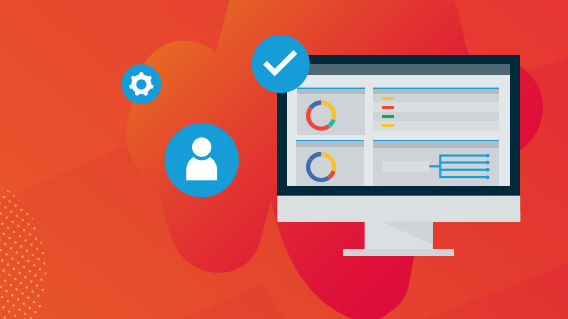Why Virgin Atlantic is turning to Microsoft Copilot for productivity gains
The airline has piqued staff interest with meeting and email summarization – but its best results could arise from the developer benefits


As businesses look to spur new levels of productivity through generative AI, it can be difficult for the average IT decision-maker (ITDM) to work out exactly how to integrate the technology into the workflow of their organization.
Having decided on Microsoft Copilot as its AI tool of choice, British airline Virgin Atlantic looked to tackle this problem by introducing the platform gradually and from the top down.
Richard Masters, VP of data and AI at Virgin Atlantic, oversaw the rollout of the firm’s initial 250-300 licenses for Copilot.
“I think we were part of the first 50 companies in the UK to have a part in this trial,” he says, explaining that his team began by providing Copilot to members of senior leadership to provide context for how the tool could slot into their working day.
“That went really well, measured through different feedbacks from the teams, through surveys and discussions with those members.”
With the generative AI assistant now well-embedded at Virgin Atlantic, the firm is beginning to see AI-driven improvements across departments. In conversation with ITPro, Masters runs through the stages of adoption and where generative AI is generating the most value.
Driving efficiency across admin and programming
Masters tells ITPro that Virgin Atlantic is using Copilot in two core areas. The first of these is the more organizational side of the business, where it helps to cut down on tedious work it mainly helps by summarizing and categorizing text.
Get the ITPro daily newsletter
Sign up today and you will receive a free copy of our Future Focus 2025 report - the leading guidance on AI, cybersecurity and other IT challenges as per 700+ senior executives
Though representative of small gains in isolation, Masters says that on a larger scale, Copilot has been able to bolster the efforts of Virgin Atlantic staff in this area. The firm has measured efficiency improvements on the back of time savings and communication enhancements.
Masters says Copilot “cuts through a lot of the noise” in meeting summarization within Teams, helping to keep people organized and accountable for action items. Adoption rates of the tool within Virgin Atlantic stand at 81%, with 70% of those adopting using the tool within Teams to assist with driving efficiencies in the context of meetings.
By comparison, 50% of adoption usage is within Outlook for the purpose of email summarization. Still a sizable figure, these statistics combined show the demand for summarization capabilities within the business as a whole.
Staff are currently saving one to two hours a week through Copilot, freeing them up to focus on more meaningful work. But Masters says specific efficiency gains on the development side of the equation are more difficult to assess, noting that “more code doesn't mean better code, necessarily”. Instead, it’s the quality and the breadth of programming languages that Copilot delivers that help Virgin Atlantic’s developers.
“What we are seeing is a broadening of ability to deal with different languages even and different types of code that a dev team may not be so familiar with.
“For example, if I've got something here in C# and I want to write it in Python, or I've got this PDF document that's got all my schema in it which is unstructured but I want to turn it into a nice, structured piece of code, putting that in the back end of Copilot and saying, ‘Look, you turn this into some Python code, for me’, is transformational.”
Outside of coding and handling text, Masters notes that Microsoft improvements offer new avenues for Copilot adoption at Virgin Atlantic. His team is exploring software-specific options that could help workers who rely on Microsoft Dynamics, for example.
Data access headaches caused a few issues
An initial barrier to adopting Copilot was deciding on the level of access the tool would be given, a problem Masters described as common for these sorts of projects.
“Just understanding what kind of data it would have access to, right, and making sure we're comfortable with that as an organization, and that people would understand and trust that it was on their data and follow the access rules that they were used to,” he says.
The other issue Masters says the firm ran into concerned staff’s sense of “relevance for certain tasks,” and the extent to which employees “got it”.
“It’s like with Googling, you look at whether someone wants to hold information in their head and learn that rather than think about the problem and how they can solve that with extra tooling because they are quite different mindsets,” Master says, adding that this is only a temporary problem.
RELATED WHITEPAPER

“There will be something that grabs someone’s interest or attention, whether it’s a different application or they see someone else use it, we see people come on board over time as well.
“So if you didn't get it originally, you couldn't see the initial application, we're seeing that start to come in as they've either joined that Teams meeting, or they've suddenly seen something useful within Word, or Outlook, or PowerPoint, especially as new features come in.”
He also pointed to new solutions such as Copilot Studio, through which Microsoft customers can create custom Copilot assistants for specific conversations, departments, or sectors, as transformational in Virgin Atlantic’s drive to implement Copilot role-by-role.
Going forward, Masters says the firm will continue to explore what AI can do for Virgin Atlantic where customer service and cost savings are concerned. He is hopeful that in the future, AI tools could on more responsibility and agency in completing tasks, beyond the confines of responding to user queries.

George Fitzmaurice is a former Staff Writer at ITPro and ChannelPro, with a particular interest in AI regulation, data legislation, and market development. After graduating from the University of Oxford with a degree in English Language and Literature, he undertook an internship at the New Statesman before starting at ITPro. Outside of the office, George is both an aspiring musician and an avid reader.
-
 Cleo attack victim list grows as Hertz confirms customer data stolen
Cleo attack victim list grows as Hertz confirms customer data stolenNews Hertz has confirmed it suffered a data breach as a result of the Cleo zero-day vulnerability in late 2024, with the car rental giant warning that customer data was stolen.
By Ross Kelly
-
 Lateral moves in tech: Why leaders should support employee mobility
Lateral moves in tech: Why leaders should support employee mobilityIn-depth Encouraging staff to switch roles can have long-term benefits for skills in the tech sector
By Keri Allan